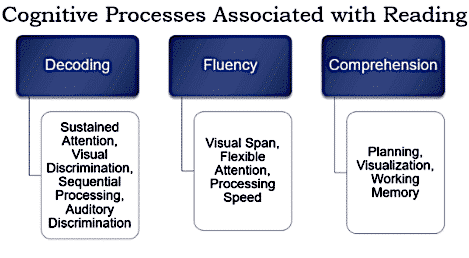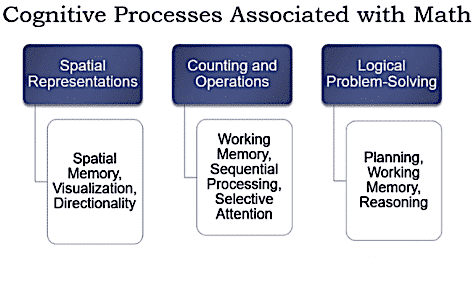To perhaps risk the ire of educators across the nation, we should ask, ‘Is academic performance really important? And if so, why?’ On its surface, these may seem like absurd questions for anyone in the education biz. Our initial reaction should be, ‘of course, it is important.’ But can we give a reason for our answer?
The reason is the apogee of doors.
Academic performance opens doors. And conversely, a lack of academic performance tends to close doors. Even slam them. Without a strong academic showing, equity becomes much harder to achieve.
In reality, good academic performance isn’t just about knowledge of the student. It is about a combination of cognitive capacity, desire, and a willingness to want to achieve within the narrow bands that we call high academic achievement. Because whether we want to believe it, not every student cares about the things we care about. Not every student wants to learn about the stuff we want him or her to learn about. Not every student cares about making good grades. And not every student sees the relevance to their lives in the things we tell them they should know.
Years ago, it was much easier. Back when the Internet did not yet exist, and teachers owned all the world’s knowledge and chose how to disseminate it, students were more likely to believe everything they were told. And life’s choices were much more defined. If you were a man, you could go to work on the farm or go into military service. If you were a woman, you could be a teacher or a nurse, or a secretary in an office. If you were a man, you could learn a trade or go to college to learn a profession. Learning a trade generally meant graduating high school. Learning a profession generally meant high academic achievement.
Today, high academic achievement means you have the ability, and you have the desire. Most students start out wanting to attain high academic achievement. Somewhere along the line, many either get bored and quit trying, or run into difficulties due to their lack of cognitive capacities. Once either of these happens, the desire eventually disappears. And after that, lower academic achievement follows, severely limiting life’s choices.
For years, research has indicated that low academic achievement erodes self-esteem. A pattern that begins in school and can last a lifetime. Poor self-esteem has also been shown to have a direct correlation to a lack of goal achievement, which can interfere in life success not only in academic pursuits, but in economic pursuits of all kinds. Further, the relationship between self-esteem and independence is closely related, and independent children tend to be higher achievers.
Moderate to high academic achievement in school is also the first and sometimes the only way for prospective employers to judge the worthiness of incoming employees. Getting a quality first job out of school starts a young person on a career path. If poor grades are the only information an employer has to go by, chances are the student will be bypassed for a more “worthy” candidate. This first hiring decision can follow a job candidate for years, stunting their opportunities.
According to research and analysis from the Social Security Administration, the average college graduate earns $900,000 more than a high school graduate over a lifetime, and the individual with a graduate degree earns $1,500,000 more than a high school graduate. So, all things being equal, high academic achievement remains the single largest determinate of equity.
So, what really determines academic achievement?
Studies show that half the variance in this equation is determined by a student’s cognitive capacity. We also know that cognitive capacity is the one thing in this equation for which we have a large measure of control.
If we look at the cognitive processes associated with reading and math, we can see the individual cognitive skills that can be positively affected by using a comprehensive, integrated cognitive literacy training tool.
While many educators consider the basics of reading to be decoding and fluency and comprehension, there are even more fundamental cognitive processes that support those skills. There is, in fact, no decoding part of our brains. We need multiple cognitive processes working efficiently, accurately and in a coordinated way, to decode words.
Educators are becoming more aware of executive functions and their role in behavior, but they are essential for academic achievement as well. For example, cognitive flexibility helps us switch smoothly back and forth between sounding words out and recognizing sight words. Working memory is necessary for holding information in our minds while we think about it and give it meaning. That is what is required for comprehension.
The story is similar in math, where visual-spatial skills, working memory and abstract reasoning play roles at different levels of the domain.
When students struggle with learning, the problem is often not a matter of curriculum and instruction. On this front, educators often get a bad rap. Of course, sometimes instructional practice and teacher effectiveness are at fault, but learner variability – the fact that we all have cognitive strengths and weaknesses – means that just about every learner needs support in one or more areas of cognitive processing.
Thus, comprehensively integrated architecture to build cognitive literacy means that students have the underlying cognitive capacity for learning. And this is the deeper and more urgent implication of cognitive literacy in our world today. Our children and grandchildren cannot hope to memorize how to do what they will need to do in their future roles and careers. They will have to learn what to do – and then learn again what to do – as circumstances and the demands of the world change. Every student should understand his or her cognitive strengths and weaknesses. Every student should have a personalized toolkit of strategies, practices and supports. Every child should have an opportunity to develop and strengthen their cognitive skills to their potential.
Cognitive literacy means that a student can learn, that they have the skills in attention, memory, perceptual processing, core and higher-order executive functions – an efficiently functioning brain, if you will – to see them through the repeated demands for learning that they will experience in their lives.

• Sustained Attention. If our minds go wandering off partway through the word or between words, so that we have to start it again, decoding is going to be impeded.
• Sequential Processing. If we can’t keep the letters in the right order or the words in the right order as they enter our brains, this will also impact decoding.
• Visual Discrimination. The ability to distinguish a “b” from a “p” or an “m” from an “n” is something our brains must do in fractions of a second for decoding to be successful.
• Auditory Discrimination. The ability to distinguish the sounds of the language is also vital to reading, since otherwise they cannot be correlated to their written representations, and we can’t hear the word we’re trying to decode to determine if what we are saying corresponds.
Not only are all these cognitive processes essential for decoding, they all have to be working together at the same time in a coordinated, well-integrated fashion. Of course, other cognitive skills may be active for decoding; the purpose here is simply to explain the involvement of some of the most important skills required for decoding.
When it comes to building fluency, we rely on practice. Practice is needed to build the automaticity of pairing symbols and sounds and the expansion of one’s repertoire of sight words. A variety of other cognitive processes will play a role here as well.
• Visual Span. This refers to how much information one can take in at a glance. Technically, it involves the coordination of peripheral and central vision, but from a practical point of view, it can mean the difference between reading word by word and being able to take in groups or lines of words.
• Flexible Attention. In the context of reading, this affects the reader’s ability to shift smoothly between words or lines, or paragraphs. It is also, importantly, utilized in shifting mindsets back and forth between decoding and recognizing sight words.
• Processing Speed. Even when an individual is able to decode words accurately, processing speed affects reading efficiency and, therefore, the ability to build fluency.
The last “basic” of reading is no more “basic” than the other two. Comprehension is why we learn to read in the first place, but it often eludes students even when they have conquered the decoding process and built up reasonable fluency. Teachers and students struggle with this, school year after school year. Here, it will be helpful to highlight three cognitive skills that can help or hinder the process of trying to understand something we read.
• Working Memory. Working memory refers to our ability to hold information in our minds while we manipulate it. Working memory capacity is highly correlated with reading comprehension (and many other academic and non-academic outcomes).
When we read a text, we accumulate pieces of information which we hold in our minds; this process happens in working memory. When we consciously think about how the information relates to our prior knowledge, which is how we create meaning, this also happens in working memory.
When we encounter a word or a concept with which we aren’t familiar, we may have to stop and figure it out from context, look it up, or ask someone. Our ability to add that to what we’re already holding in our minds about our text happens, again, in working memory. If working memory is weak, comprehension will be a significant struggle.
• Visualization. Visualization refers to our ability to create a mental picture of something we are reading about. It may not be a picture of a physical object; it could be relationships among things or characters. It could be a sort of mind-map, but it takes advantage of the capacity of our visual processing system to create a stronger memory that we can later retrieve.
• Planning. As students become more proficient readers, they will learn that there are many ways to read and understand a text. For example, we may read for a specific piece of information (what time to meet the bus for the field trip). We may read another text for the gist or to gauge the emotional tone. Or we may read slowly and deeply, trying to commit a mass of information to memory or grasp a complex concept. The ability to plan our approach to reading will help us be effective and efficient readers.

The relationship of math success to visual-spatial abilities is strongly supported by research, and the correlation actually appears to increase as the complexity of the mathematical task increases. The important aspect of visual-spatial processing is not just remembering the shape, size, color and number of objects, but their relationships to each other in space. It turns out that visual memory by itself (what things are) is somewhat error-prone, but spatial memory (where things are) is associated with correct answers and is thus an important aspect of mathematical problem-solving. Within visual-spatial processing, we can distinguish cognitive skills such as the following:
• Spatial Memory. This refers to our ability to remember where we are in space and where we are related to other objects in space. This understanding provides the foundation on which problems (changes in the space) can be solved.
• Visualization. Our ability to visualize a problem we are considering or to visualize alternative solutions contributes substantially to our understanding of the problem. When we learn transformations in geometry, for example, interpreting the difference between a translation (sliding an object along a straight line), a rotation (turning an object around a point) and a reflection (mirror image) is greatly aided by our visualization skills.
• Directionality. The ability to distinguish left and right, of course, is more than about math. It comes in handy when tying shoes, reading a map or a chart, and in executing a football or basketball play. It is critical in chemistry (where two molecules may differ only in the orientation of the atoms (the technical term is “enantiomer”), but have two completely different uses (like one drug used to treat tuberculosis whose enantiomer causes blindness). While we don’t all deal with chemistry on a daily basis, we do often have to navigate unfamiliar territory. Imagine someone just handed you a map with a route traced on it. Do you have to keep turning the map around to figure out what direction to turn next? If so, your directionality skills are not as strong as they might be.
When it comes to counting and numerical operations, we are again dependent for math success on some foundational cognitive skills, such as sequential processing and selective attention, and on executive functions (the directive capacities of our minds) such as working memory.
• Working Memory – As explained in our previous article, working memory refers to our ability to hold information in our minds while we manipulate it. Working memory capacity is highly correlated with reading comprehension, math performance, and many other academic and non-academic outcomes. Working memory serves math processes from the very simple (for example, keeping track of which apples in the basket we’ve counted and which we haven’t) to the most complex reasoning and mental simulations we perform when calculating statistics or contemplating string theory, or manipulating derivatives in calculus.
• Sequential Processing – Counting, of course, is all about sequences, so once again, cognitive skills contribute crucially at even the most elementary stages of math. As we start to manipulate and calculate, the sequence of steps to solve a problem must be observed. A concrete example is the concept of order of operations and the different result that comes from (6 + 5) X 2 and from 6 + (5 X 2).
• Selective Attention – When we have good selective attention, we can more easily screen out the irrelevant parts of a complex problem and isolate the pertinent facts that we need to concentrate on. If Mary, who is wearing a red dress, is 3 years older than John, who is wearing a blue shirt and jeans and just celebrated his 10th birthday, we don’t need to know the color of their clothes to determine how old Mary is.
These comprehensively integrated cognitive skills that make up the cognitive processes necessary in learning reading and mathematics are the building blocks to attaining high academic achievement. Not helping learners attain these cognitive skills when we have the ability to do so is akin to willfully closing the door on opportunity for millions of children, denying them the benefits of academic success for true equity.
In addition to future considerations of college entrance, acceptance into professional programs and highly technical and high-paying jobs, the present considerations of mental wellbeing are extremely important. Students wanting academic success who do not have the cognitive capacity for success are prone to experience a myriad of mental and emotional problems, which continue through the entire family unit. When comprehensive integrated cognitive training is allowed to open up these lines of success, both students and their families tend to experience a much higher degree of emotional wellbeing which is proven to have a long-lasting effect for meaningful social justice.
- edCircuit – What Do You Mean by ‘Cognitive Capacity?’
- edCircuit – What You Should Know About Cognitive Skills Development in Special Education
- The Washington Post – Poverty strains cognitive abilities, opening door for bad decision-making, new study finds
